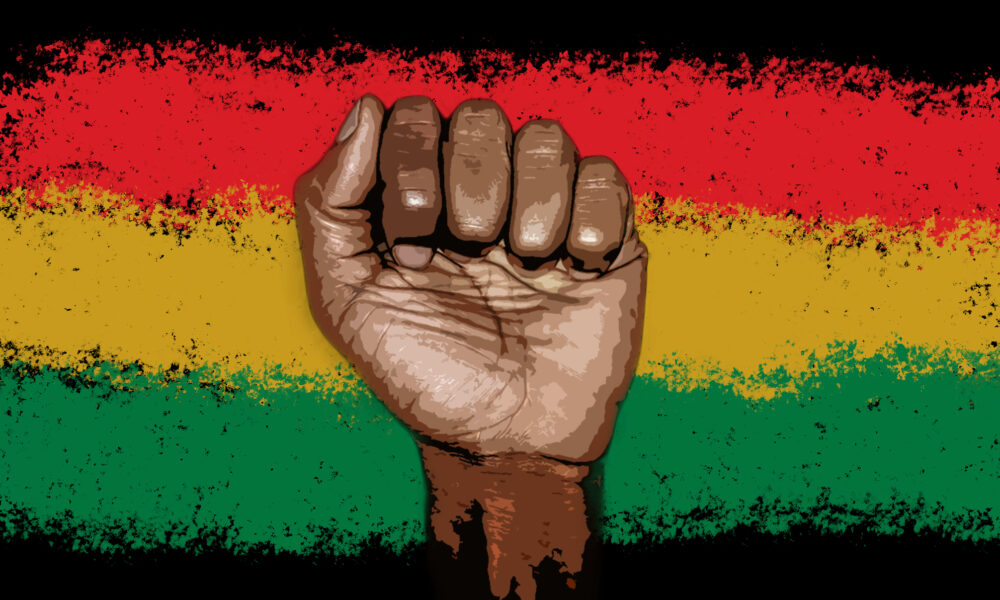February 2022 marks the sixth official celebration of Black History Month at McGill, though members of Montreal’s Black community, including student groups at McGill and Concordia University, have been leading the occasion for more than two decades. This year’s celebrations were organized by the Office of the Provost and Vice-Principal Academic (OPVPA) in partnership with the Faculty of Science and will include four main OPVPA events and more than 10 general events spearheaded by students, staff, and faculty.
Since 2020, McGill’s Equity Office has partnered with a different faculty each year to organize Black History Month events. This year, the Faculty of Science teamed up with student groups such as the Black Students’ Network (BSN), Black Students Financial Society, and the African Studies Students’ Association.
In addition to events organized by the McGill administration, the McGill African Students’ Society (MASS) hosts their annual Africa Speaks Conference, which covers a variety of contemporary Afrocentric issues, and aims to expand discussions about African society and culture beyond the oft-discussed topic of “development.”
According to Joy Sebera, U2 Arts, this year’s theme is “Africa in the Media.” As MASS vice-resident Education, Sebera is the lead organizer of the Africa Speaks Conference 2022, which will explore the evolution of Africa’s creative industries.
“‘Africa in the Media’ aims to engage content creators, authors, entrepreneurs, and more in conversation about African media and art as well as the African presence, or lack thereof, in Western media,” said Sebera.
Hassanatou Koulibaly, MASS president and U2 Arts & Science, appreciated the administration’s inclusion of student groups in the planning process of Black History Month 2022 was welcomed, but says that more needs to be done to spread the word to the wider McGill community.
“I think generally we appreciate the efforts made and the events planned and the consideration for student groups and the activities we may have individually planned,” Koulibaly said. “But we feel that visibility and awareness of these events definitely need to be worked on so that students and faculty at McGill are aware.”
Beulah Omo-Idowu, U3 Science, however, believes the problem extends beyond a simple lack of awareness about Black History Month. Omo-Idowu told the Tribune she had attempted to organize a Black History Month movie night for La Citadelle residence, where she is a floor fellow, but that it never came to fruition.
“People don’t like to be confronted with conversations about race, because, especially in spaces like McGill where it emphasises how diverse it is and how diverse we are, no one ever wants to examine where maybe they’re not being exactly inclusive,” Omo-Idowu said.
When it comes to McGill as an institution, James McGill’s racist and colonial history, alongside the administration’s efforts to downplay it, have been well–documented and protested. While McGill’s Action Plan to Address Anti-Black Racism 2020-2025 discusses the university’s problematic glorification of James McGill, the Strategic Equity, Diversity & Inclusion Plan 2020-2025 makes no direct mention of his connection to the enslavement of Black people.
“[McGill is] lacking in terms of actually doing things outside of February,” Omo-Idowu said. “[Black History Month] celebrations are nice but [in regards to] the policies in this school, […] at least in my program, I have not seen any Black staff or professors.”
There remain few Black faculty and students at McGill. As of September 2020, only 14 of approximately 1,750 tenure-track and tenured professors—0.8 per cent—were Black, and during the Spring 2019 convocation ceremony, a total of 40 Black students accepted diplomas on stage. Black students and staff, who often report feelings of isolation and lack of representation, would benefit from a designated space in which they could bond and interact, suggested Koulibaly.
“I think also creating a space for discussion with non-Black persons at McGill in a less formal setting than a town hall, for example, would also help bridge a gap at McGill,” Koulibaly added. “Beyond just the month of February, it would be nice to still see some of the excellence that exists in the Black community recognized.”









It has always astonished me how Black people could be brutalized and told they were not welcome — while they, as a people, had been violently forced to the U.S. from their African home as slaves. In Toni Morrison’s novel Beloved, the narrator notes that, like the South, the Civil-War-era North also hated Black people but happened to hate slavery more.
After 35 years of news consumption, I’ve found that a disturbingly large number of categorized people, however precious their souls, can be considered thus treated as though disposable, even to otherwise democratic nations.
When they take note of this, tragically, they’re vulnerable to begin subconsciously perceiving themselves as beings without value. (I’ve observed this in particular with indigenous-nation people living with substance abuse/addiction related to residential school trauma, including the indigenous children’s unmarked graves in Canada.)
I wonder, when will there be reparations for the abovementioned peoples?